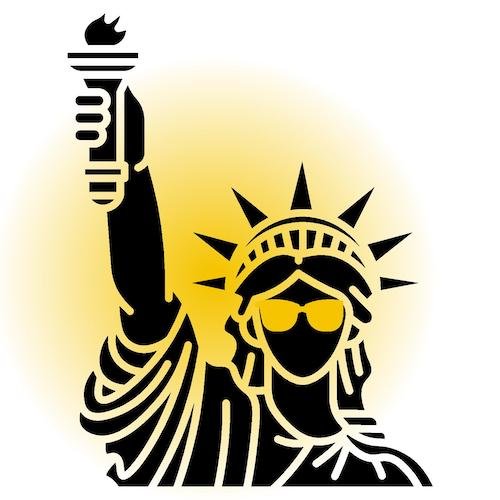Libertarianism, a political philosophy advocating for individual liberty and limited government intervention, has a complex and fascinating history. This article delves into the historical development of libertarian thought, tracing its roots from the Enlightenment period to its evolution into the distinct philosophy it is today. Understanding this history is key to grasping the nuances of modern libertarianism.
Origins in Enlightenment Thinking
The foundations of libertarian thought can be traced back to the Enlightenment, a period marked by a revolutionary shift in philosophical thinking. Enlightenment thinkers like John Locke and Adam Smith championed ideas that would become central to libertarian philosophy: individualism, natural rights, and a skepticism of absolute authority.
John Locke’s theories of natural rights and the social contract laid the groundwork for the libertarian emphasis on individual liberty and property rights. Adam Smith’s “The Wealth of Nations” introduced the concepts of free markets and the ‘invisible hand,’ arguing for economic systems that allow individual freedom and limited government interference.
Classical Liberalism and the Birth of Libertarianism
Classical liberalism emerged as a political ideology during the 18th and 19th centuries, building upon Enlightenment ideas. It advocated for the protection of individual liberties, a free-market economy, and a limited role for government – principles that would shape the early form of libertarianism.
Key figures like John Stuart Mill and Thomas Jefferson were instrumental in developing classical liberal thought. They argued for the importance of personal freedom, the right to express dissenting opinions, and the necessity of limiting government powers to protect individual rights. This period laid the ideological foundation for what would later be recognized as libertarianism.
The 20th Century and the Libertarian Identity
The 20th century witnessed significant transformations in libertarian thought, influenced by global events and intellectual movements. The World Wars, the Great Depression, and the rise of totalitarian regimes challenged and refined libertarian perspectives.
Economists and philosophers like Friedrich Hayek and Ludwig von Mises played pivotal roles during this era. Hayek’s “The Road to Serfdom” argued vehemently against centralized planning and socialism, emphasizing the dangers they posed to individual freedoms. Ludwig von Mises contributed significantly to the development of Austrian Economics, a key influence in libertarian economic thought, advocating for free-market capitalism as a means to ensure personal and economic freedom.

Libertarianism in the Post-War Era
The post-World War II era marked a significant period of growth and diversification for libertarian thought. The horrors of totalitarian regimes during the war had a profound impact, leading many to advocate more strongly for individual freedoms and limited government.
This period saw the rise of influential works that became cornerstones of libertarian philosophy. Ayn Rand’s “Atlas Shrugged” championed the moral right of individuals to pursue their own happiness and interests. Milton Friedman’s “Capitalism and Freedom” argued persuasively for free markets and against government intervention, influencing a generation of economists and politicians.
Alongside these literary influences, the post-war era also witnessed the establishment of libertarian organizations and think tanks. These institutions played a crucial role in disseminating libertarian ideas and shaping public policy debates, particularly in the United States.
Modern Libertarianism and its Diverse Strands
In recent decades, libertarian thought has continued to evolve, branching into various strands and adapting to the challenges of a changing world. This diversification reflects the philosophy’s core emphasis on individualism and the interpretation of what that means in different contexts.
Anarcho-capitalism, for instance, takes libertarian principles to their extreme, advocating for the elimination of the state in favor of a society organized around voluntary associations and private property. Minarchism, on the other hand, supports a minimal state limited to protecting individual rights and providing essential public goods.
Another interesting development is the emergence of libertarian socialism, which combines libertarian anti-authoritarianism with socialist views on economic equality. This strand emphasizes decentralization and voluntary cooperation, challenging traditional libertarian views on property rights and capitalism.
Technology and globalization have also influenced modern libertarianism. The rise of the digital age has brought new discussions about privacy, digital rights, and the role of government in regulating the internet – all areas of significant interest to libertarians.
Conclusion
The history and evolution of libertarian thought reveal a rich tapestry of ideas and influences, stretching from the Enlightenment to the modern day. This journey reflects the adaptability and enduring relevance of libertarian principles in various historical contexts and challenges.
As society continues to evolve, libertarianism remains a vibrant and dynamic philosophy, constantly reinterpreting and reasserting its core values of individual liberty, limited government, and free-market economics. The exploration of its history is not just an academic exercise but a window into understanding the diverse perspectives that shape our world’s political landscape.
